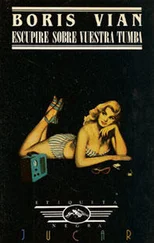After an obvious gap in our sources (with which we don't want to burden the reader, so he can retain a pleasant but false satisfaction in believing that this is a story like any other, which, fortunately for the author, is usually equated with the power of his imagination), we find him in an insane asylum in Malinovsk, among severely disturbed and dangerous lunatics, from which, disguised as a high school student, he escaped on a bicycle to Batum, Undoubtedly be faked his madness, its certification by two eminent doctors notwithstanding; even the police were aware of this, retaining the two doctors as sympathizers of the Revolution. His later whereabouts are more or less known: one early September morning in 1913, just before dawn, Novsky boarded a ship and, hidden among tons of eggs, headed for Paris via Constantinople. There, during the day we find him in the Russian library on the Avenue des Gobelins and in the Musée Guimet, where be studied the philosophy of history and religion; and in the evening, in La Rotonde in Montparnasse with a glass of beer, wearing "the most elegant hat to be found in all Paris.” (Bruce Lockhart's allusion to Novsky s hat is not, however, without its political Implications: it is common knowledge that Novsky was a functionary of the powerful union of Jewish hatmakers in France.) After the declaration of war, he disappeared from Montparnasse. The police found him in the vineyards near Montpellier during the harvest season, with a basket of ripe grapes in his arms: this time, putting handcuffs on his wrists was not difficult. Whether Novsky escaped from France or was expelled is not known. We do know that he soon appeared in Berlin as one of the collaborators on the Social Democratic papers Neue Zeitung and Leipziger Volkzeitung under the pseudonyms B. N. Dolsky, Parabellum, Victor Tverdohlebov, Proletarsky, and N. L. Davidovich, and that, among other things, he wrote a famous review of Max Schippel's The History of the Production of Sugar. “He was,” writes the Austrian Socialist Oscar Blum, “a strange mixture of amorality, cynicism, and spontaneous enthusiasm for ideas, books, music, and human beings. He looked, I’d say, like a cross between a professor and a bandit. But his intellectual brio was unquestionable. That virtuoso of Bolshevik journalism knew how to conduct conversations which were as full of explosives as his editorials." (The word "explosives” leads us to the bold conclusion that Oscar Blum might have been acquainted with the secret life of Novsky. Unless it is only a matter of inadvertent metaphor.) In Berlin at the outbreak of war, when the workers who rallied to the flag resembled ghosts, and cabarets full of thick cigar smoke resounded with female shrieks, and all that cannon fodder tried to drown its fears and despair in beer and schnapps, Novsky, Blum adds, was the only one who didn't lose his head in this European madhouse, the only one with a clear perspective.
On a bright autumn day, while lunching at the salon of the famous Davos Sanatorium in Basel, where he was undergoing treatment for his nerves and his slightly tubercular lungs, Novsky was visited by one of the members of the International named Levin. Dr. Grünwald approached them; he was Swiss, a disciple and friend of Jung, an authority in his field. According to Levin's testimony, the conversation was about the weather (the sunny October), about music (a recent concert given by a woman patient), about death (her musical soul had expired the night before). Between the meat and quince compote, served them by a waiter wearing a uniform and white gloves. Dr. Grünwald, losing the thread of the conversation, said in his nasal voice (only to fill an awkward silence): "There's some kind of revolution in St, Petersburg" (A pause.) The spoon in Levin's hand stopped in mid-air; Novsky started, and reached for his cigar. Dr. Grünwald felt a certain uneasiness. Trying to infuse his voice with absolute indifference, Novsky attempted to calm his trembling hands. "Excuse me. Where did you hear that?" As if apologizing, Dr. Grünwald said that he had seen the news that morning posted in the windows of the telegraph bureau in town. Without waiting for coffee, deathly pale, Novsky and Levin quickly left the salon and went into town by taxi. "I heard as if dazed,” writes Levin, "the murmur coming from the salon, accompanied by the din of silver utensils like the tinkling of bells, and saw as through a fog the world we had left behind, and which was irretrievably sinking Into the past, as into murky water".
Some documents lead us to conclude that Novsky, swept away by a wave of nationalism and bitterness, received the news of the truce, in spite of everything, as a blow. Levin speaks of a nervous crisis, and Meisnerova passes over this period with the haste of an accomplice. It seems, however, that without great resistance Novsky dropped his Mauser and, as a sign of remorse, burned the plans of his assault bombs and his 70-meter flame throwers, and joined the ranks of the Internationalists. Soon we find him, tireless and ubiquitous, among the supporters of the Brest-Litovsk peace, distributing antiwar propaganda leaflets, and, as a fiery agitator among the soldiers, standing on boxes of artillery shells, erect as a statue. In this quick and, so to speak, painless transformation of Novsky, a certain woman appears to have played a major role. In the chronicles of the Revolution, her name is recorded: Zinaida Mihailovna Maysner. A certain Leo Mikulin, who had the misfortune of falling in love with her, has portrayed her with words that could easily have been engraved on marble: “Nature gave her everything: intelligence, talent, beauty."
In February 1918, we see him in the wheat fields of Tula, Tambov, and Orel, on the banks of the Volga, in Kharkov, where under his supervision convoys of confiscated wheat were sent up to Moscow. In the black leather uniform of a commissar, with shiny boots, and a leather and sheepskin cap without insignia, he dispatched the convoys, his hand on his Mauser, until the last boat disappeared into the hazy distance. In May of the following year, he put on a camouflaged uniform and became a sharpshooter cutting off Denikin's rear guard. The terrifying explosions in the southwest sector of the front, taking place suddenly and mysteriously, leaving a slaughterhouse behind them, bore Novsky's stamp just as handwriting can reveal character to an expert. In late September, on the torpedo boat Spartacus, which flew the red flag, Novsky set off for Reval on patrol. Suddenly the boat ran into a strong British squadron of seven light vessels armed with 25-millimeter guns. The torpedo boat swerved and, with a reckless maneuver under the cloak of the descending night, succeeded in reaching Kronstadt. If we can believe the testimony of Captain Olimsky, the crew of the torpedo boat should have been much more grateful for their lucky rescue to the shrewdness of a woman, Zinaida Mihailovna Maysner, than to Novsky's presence: she was the one who negotiated by signal flag with the British flagship.
A letter from those years, written in Novsky’s hand, remains the only authentic document that combines, deeply and mysteriously, revolutionary passion with sensual love: "… As soon as I entered the university I found myself in prison. I was arrested exactly thirteen times. Of the twelve years that followed my first arrest, I spent more than half at hard labor. In addition, three times I walked the painful road of exile, a road that took three years of my life. During the brief periods of my "freedom" I watched, as in a movie theater, the passing of sad Russian villages, towns, people, and events, but I was always in flight-on a horse, on a boat, in a cart. I never slept in the same bed for more than a month. I've come to know the horror of Russian reality in the long tedious winter evenings when the pale lights of Vasilevsky Island barely blink, and a Russian village emerges in the moonlight in a false and deceptive beauty. My only passion was this arduous, rapturous, and mysterious profession of revolutionary… Forgive me, Zina, and carry me in your heart; it will be as painful as a kidney stone."
Читать дальше









